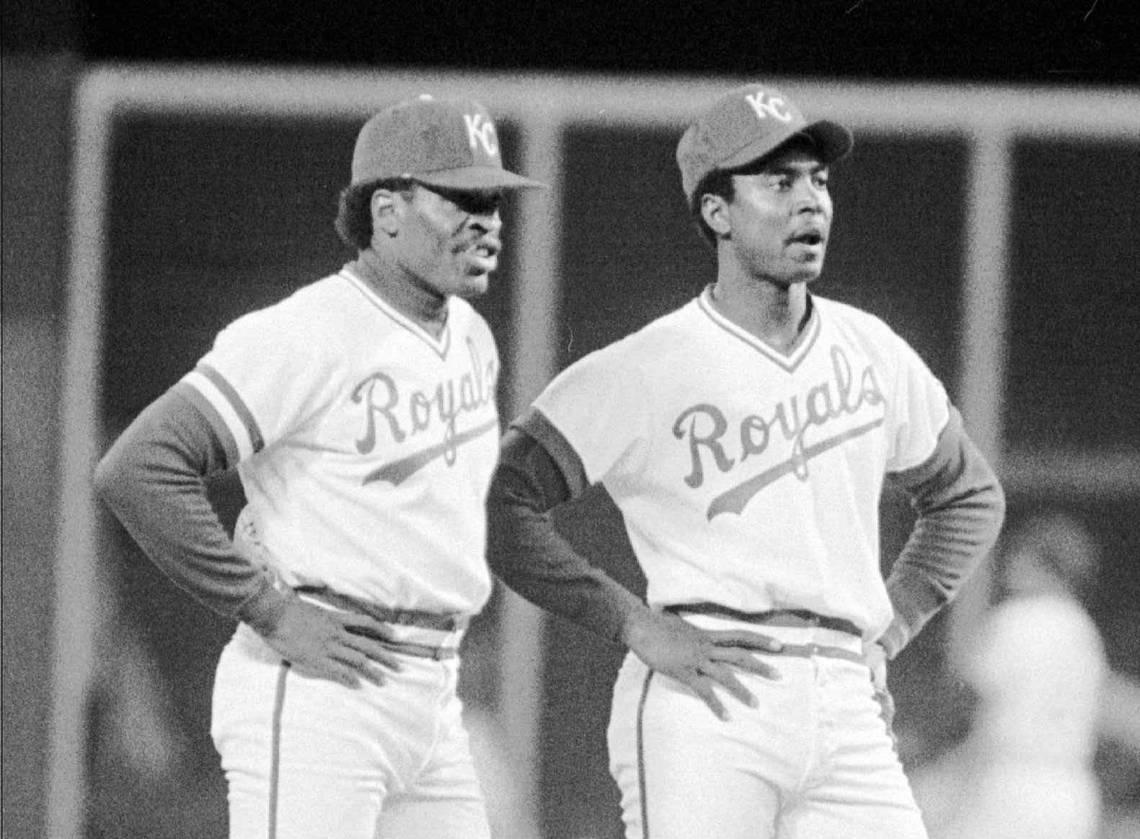U.L. Washington, who helped Royals to first AL pennant, dies at age of 70

If not for U.L. Washington, two of the biggest moments in George Brett’s career may never have happened.
Washington, the former Royals infielder who died Sunday at the age of 70, had a two-out single in the seventh inning of Game 3 of the 1980 American League Championship Series. Brett followed with a towering three-run home run off Yankees star Goose Gossage that sent the Royals to their first World Series.
And then there was this: The Royals were trailing the Yankees 4-3 in the top of the ninth inning on July 24, 1983 when Washington had a two-out single against Dale Murray. New York manager Billy Martin summoned Gossage to face Brett, setting up the infamous “Pine Tar Game” moment.
But what many fans remember most about Washington, who the Canadian Baseball Network said had been battling cancer and underwent recent surgery, was what was in his mouth during games.
A toothpick.
“I’d much rather be remembered as a pretty good player, but I realize most people will remember me as the guy with the toothpick,” Washington told the Oklahoman in 1988. “I feel I’ve had a pretty good career, especially looking back at how I got into professional baseball.”
It was a nontraditional path to the majors.
The Society for American Baseball Research noted that after Washington graduated from Murray State College in Tishomingo, Oklahoma, he got a tryout thanks to his brother James, who was an usher at Royals games. Washington had a workout at Municipal Stadium in Kansas City and another in Florida before he signed with the team and went to the Royals Academy in Sarasota.
The Royals did ask one question: what does U.L. stand for?
“U.L..” he told the team, as a paper in Oklahoma reported in the mid-1970s, “stood for nothing else. Just U.L.”
Washington made his Royals debut on Sept. 6, 1977, the first of 10 games for him that season. Playing mostly at the middle infield positions, Washington saw his playing time increase each year, topping out in 1980 when he appeared in 153 games as the Royals starting shortstop, replacing Freddie Patek. Washington hit .273 with 11 triples and 20 stolen bases that season.
In the 1980 ALCS, Washington batted .364, helping the Royals win their first pennant. He had a .273 average against the Phillies in the World Series.
The nation got its first look at Washington in the postseason, and his ever-present toothpick made waves. At baseball’s winter meetings after the 1980 season, there was talk of banning the toothpick. But Major League Baseball never enacted such a rule.
Washington told The Star at the time he used the toothpick because tobacco burned his mouth.
“I never thought it’d get to the point where they would have meetings over it,” Washington told The Star. “As a matter of fact, I was thinking about not using it because the toothpick gets more publicity than I do.
“People ask what started it, why I do it, and stuff like that. Some said it was something different, something new, and others said it was really bad for kids coming up who might try it.”
Washington got rid of the toothpick ahead of the 1981 season, which was shortened by a labor dispute. His average dropped to .227, and he went back to the toothpick the following season.
“If you hit .273 with it and .227 without it, what would you do?” Washington asked a reporter, per the SABR biography.
In the 1982 season, Washington set career highs in average (.286), home runs (10) and RBIs (60), but the Royals missed the playoffs. After two more seasons in Kansas City, Washington was traded to the Expos as Onix Concepcion became the Royals starting shortstop.
After one season in Montreal, Washington played two years for the Pirates before his playing days came to an end.
Washington later worked in a variety of roles for the Royals as a hitting coach at Triple-A Omaha, a coach at Double-A Memphis and as a roving hitting instructor. He was later hired by the Red Sox and worked in their minor-league system from 2003-2014, the SABR story said, and the team won three World Series titles in that span.
During the 2013 season, Washington worked closely with a slumping hitter at Class A Greenville, changing the course of Mookie Betts’ career.
“U.L. did an awesome job of helping (Betts) understand his swing and understanding some things he was doing at the time,” former Red Sox hitting coach Tim Hyers told the Boston Globe in 2016. “U.L. thought he would drive the ball one day because his hands are so quick and he’s got such great body control. ... It was, like, ‘It’s just a matter of time. This guy is going to figure it out.’”
Washington retired following the 2014 season after four decades in baseball.
“I never dreamed I’d even play big-league baseball,” Washington told the Oklahoman when he was done playing in the majors. “It’s just something that happened. Playing pro ball is something I’ll always cherish.”


